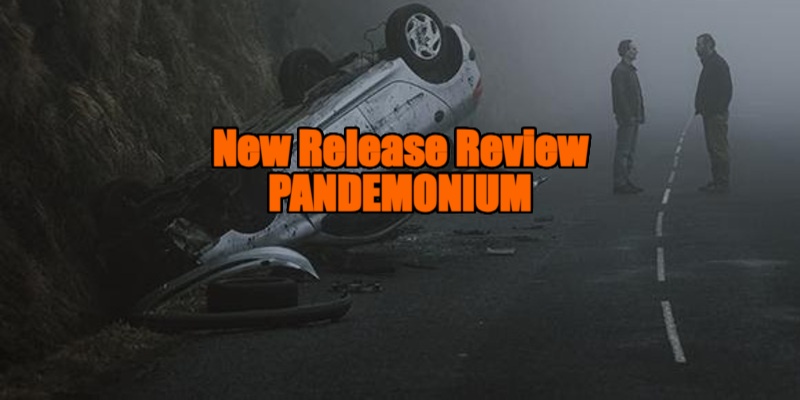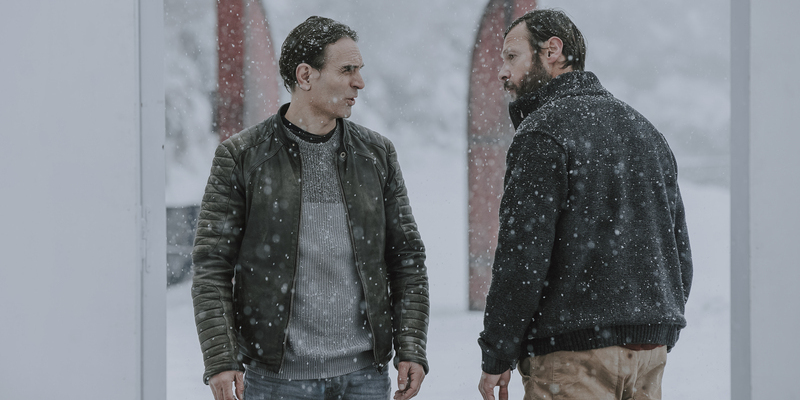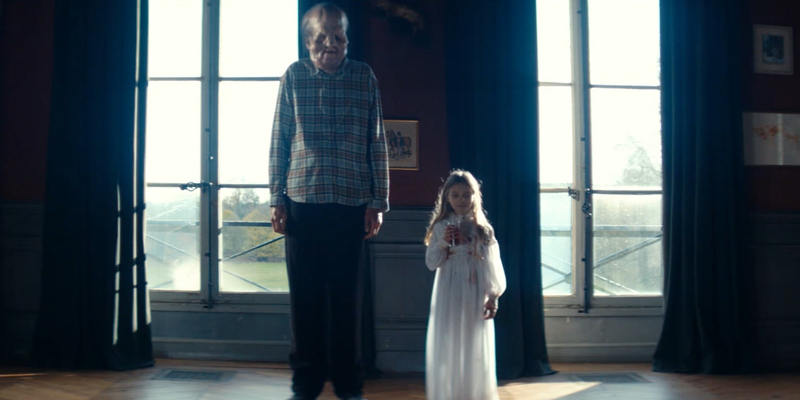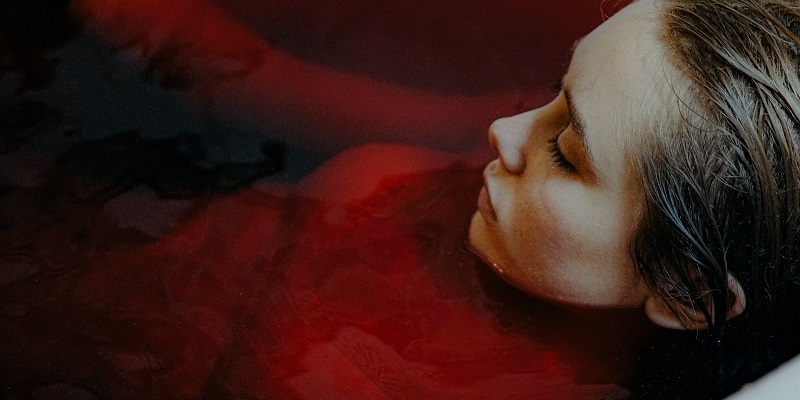
Review by
Eric Hillis
Directed by: Quarxx
Starring: Hugo Dillon, Arben Bajraktaraj, Manon Maindivide, Ophélia Kolb, Sidwell Weber, Carl Laforêt

Those who believe in Heaven and Hell, or any cultural variations
thereof, like to think they have it sussed. If they live a good life
they'll go to Heaven, while a bad life will send them to the other
place. But who's to say what moral standards are applied by whatever
forces decide the ultimate destination of a soul? Are they the standards
held by the religious fanatic or by modern society? Many Christians are
fine with two people of the same sex having physical intercourse, and
there are many gay Christians, but the founding text of their religion
says otherwise. Euthanasia and abortion are considered equivocal to
murder by many, yet are legal in several countries. Personally speaking,
I don't view people who engage in gay sex, who have undergone abortions
or have helped put a loved one out of their misery as bad people. But
I'm not the one that will be standing at the pearly gates passing
judgement. I also don't happen to believe in Heaven or Hell, and I'm relieved
that I hold such a view because if I did, the suggestions made in
writer/director Quarxx's Pandemonium would
probably keep me up at night.
Quarxx, a French multidisciplinary artist who made his feature film
debut with 2018's All the Gods in the Sky, opens his second film with a man, Nathan (Hugo Dillon), waking
in the middle of the road on a misty mountain outside. Looking at his
car, which has ploughed into the cliff face, he expresses dismay at
having survived such a crash. He's joined by Daniel (Arben Bajraktaraj), who was riding the motorcycle Nathan struck. Daniel breaks the bad
news to Nathan that they didn't actually survive the accident, that they
died and are now stuck in some form of limbo. Nathan laughs off the
suggestion until he looks into the wreckage of his car and sees his own
limp, mangled corpse.

Then two doors open at opposite ends of the road. One is white and
emanates beautiful music. The other is a sinister shade of ocre and the
sound of screams can be heard beyond its façade. Naturally the two lads
opt to walk through the former, but they merely end up back on the road.
It seems their destiny is out of their hands. Daniel has been damned for
being drunk and killing a little girl with his bike, while Nathan has
been similarly judged for murdering his wife, which he protests was a
case of euthanasia.
His protestations falling on deaf ears, Nathan resigns himself to
entering Hell, which appears to be modelled on Lucio Fulci's vision of
the underworld as seen in The Beyond. Corpses lie scattered around and when Nathan touches any of the
bodies he's "treated" to the story of how they ended up in Hell.
At this point the film morphs into a quasi-horror anthology, albeit
with only two stories. The first is actually a short Quarxx previously
released in 2021, 'Les Princesses font ce qu'elles veulent', which tells
the tale of Nina (Manon Maindivide), a troubled nine-year-old
whom we see being interviewed by a child counsellor regarding her
violence towards animals and her younger sister. Nina's parents are
worried about their daughter, and they're right to be, as they're killed
in their sleep. Discovering their corpses the next morning, Nina blames
it on her imaginary friend Tony (Carl Laforêt), whom she cruelly
describes as a monster due to his neurofibromatosis. Tony denies having
committed the deed, but he's happy to be allowed leave the confines of
his subterranean cave. Meanwhile, Nina is setting her sights on
subjecting her sister to a similar fate as her parents.

The second story is an original creation that sees
Ophelia Kolb cast as Julia, a busy professional woman who ignores
the cries for help from her bullied teenage daughter Chloe (Sidwell Weber) until she finds her dead body in the bathtub. Suffering from a
breakdown, Julia acts as though her daughter is still alive, making
plans to take her away on a trip. This is intercut with gruelling
flashbacks of the torment Chloe endured at the hands of her fellow
school pupils.
Pandemonium implies that whoever or whatever is in charge
of deciding who gets to Heaven and who goes to Hell is a merciless
puritan. Of the various souls whose stories we're either shown or told,
only Nina comes close to any sort of definition of "evil," but given her
age is she really cognisant of her actions? Of course, we only have
Nathan's word that he killed his wife out of mercy, and some might hold
the view that anyone who gets drunk and mans a vehicle like Daniel
deserves a harsh punishment if they take another life due to their
carelessness. But what of Julia and Chloe? Suicide is despicably
considered a sin by most religions, certainly Christianity, but is
Julia's failure to read her child's pain really a transgression worthy
of eternal damnation?

Even for an atheist like myself Pandemonium is a deeply
upsetting watch. Even if you don't believe in Heaven and Hell you'll
find the implications of Quarxx's film intensely depressing. Perhaps
what's most troubling is that even in the 21st century so many people
still believe in such things, and that they're comfortable with the idea
of having their very existence ultimately audited with such black and
white moral judgment.
While it's one of the most thematically dark films I've seen in some
time, Pandemonium also boasts humour of the blackest kind.
The wraparound segment could almost be an adaptation of a Woody Allen
short story as Nathan attempts to weasel his way out of a Hell that is
stubborn in its bureaucracy. After 90 minutes of unrelenting misery,
Pandemonium does end on a relatively uplifting note that
suggests Hell might only exist because its employees blindly follow
orders.


Pandemonium is on Arrow Player from
May 27th.
